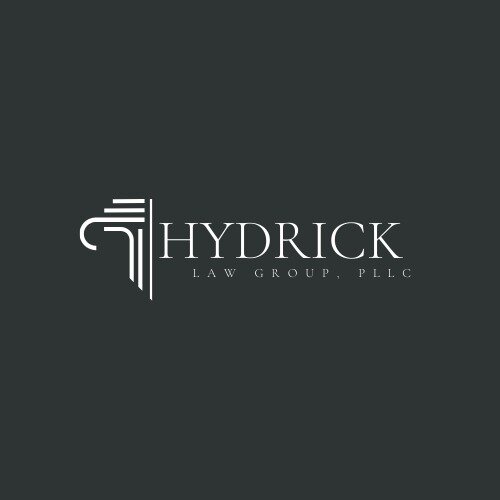Best Corporate & Commercial Lawyers in Miami
Share your needs with us, get contacted by law firms.
Free. Takes 2 min.
List of the best lawyers in Miami, United States
United States Corporate & Commercial Legal Articles
Browse our 1 legal article about Corporate & Commercial in United States written by expert lawyers.
- United States NY LLC Transparency Act 2026 Compliance Guide
- The federal Corporate Transparency Act (CTA) and New York's LLC Transparency Act are separate regimes: reporting to FinCEN does not satisfy New York's 2026 state filing requirement. Most small corporations and LLCs in the United States must file Beneficial Ownership Information (BOI) with FinCEN starting 2024, unless a specific federal... Read more →
About Corporate & Commercial Law in Miami, United States
Corporate and commercial law in Miami involves the rules and regulations that govern business organizations, transactions, and operations within the city and the broader state of Florida. Miami, a hub for domestic and international business activity, particularly in finance, trade, real estate, and startups, has a vibrant corporate scene. This area of law covers entity formation, mergers and acquisitions, contracts, compliance, employment matters, intellectual property, dispute resolution, and more. Understanding the legal landscape is essential for both newly formed companies and established businesses operating in Miami.
Why You May Need a Lawyer
Engaging a corporate and commercial lawyer can be crucial for businesses and entrepreneurs in Miami for many reasons. From selecting the right business structure - such as a corporation, LLC, or partnership - to negotiating commercial contracts or managing risk in international transactions, legal support ensures you comply with relevant laws and avoid costly pitfalls. Common situations requiring legal help include:
- Starting or incorporating a new business
- Buying or selling a business
- Drafting, reviewing, or negotiating contracts
- Resolving shareholder or partnership disputes
- Handling employment or labor law matters
- Addressing regulatory compliance issues
- Protecting intellectual property
- Litigating commercial disputes
- Managing mergers, acquisitions, or joint ventures
- Dealing with franchise or licensing matters
Local Laws Overview
Miami businesses must comply with both Florida state laws and the regulations of the City of Miami and Miami-Dade County. Some key legal considerations include:
- Business Formation: Choices include corporations, limited liability companies (LLCs), partnerships, and sole proprietorships, each with distinct legal and tax implications.
- Corporate Governance: Strict rules under Florida Statutes govern corporate bylaws, director duties, shareholder rights, and annual filing requirements.
- Commercial Contracts: Florida law emphasizes the importance of written contracts with clear terms. Litigation on contract disputes is common, so precision is critical.
- Employment Law: Businesses must comply with local, state, and federal employment laws, such as anti-discrimination rules, wage and hour requirements, and workplace safety regulations.
- Licensing and Permits: Local businesses often need city and county-level business tax receipts, zoning approvals, and industry-specific licenses.
- Real Estate Transactions: Miami is known for its complex real estate market, and commercial leases or property sales often have particular legal nuances.
- International Business: Miami’s role as an international gateway means additional regulations for import, export, and cross-border transactions.
- Dispute Resolution: The court system offers various options including mediation, arbitration, and litigation, with some disputes being governed by local business courts.
Frequently Asked Questions
What type of business structure is right for my company in Miami?
The choice depends on factors such as liability, taxation, management, and the number of owners. Common options include corporations, LLCs, partnerships, and sole proprietorships. A lawyer can help you assess which structure fits your needs and goals.
Do I need a written contract for my business arrangements?
Yes, having a written contract helps prevent misunderstandings and protects your interests. Florida law recognizes both oral and written contracts, but written agreements are easier to enforce and provide clarity if disputes arise.
How do I register my business in Miami?
Most business types require registration with the Florida Division of Corporations. You may also need local business tax receipts, permits, and licenses from the City of Miami or Miami-Dade County depending on your industry.
What are my legal obligations as an employer in Miami?
You must follow all federal, state, and local employment laws, which cover wages, anti-discrimination, workplace safety, and more. Miami employers also need to be aware of local ordinances that may provide additional protections for employees.
How are commercial disputes resolved in Miami?
Disputes can be resolved through negotiation, mediation, arbitration, or litigation. Miami has specialized business courts that handle complex commercial litigation efficiently.
What is required to import or export goods through Miami?
International trade in Miami is governed by federal customs rules as well as state and local regulations. Importers and exporters typically need special licenses, permits, and careful compliance with U.S. trade laws.
How can I protect my intellectual property?
Protection may involve registering trademarks, copyrights, and patents. A lawyer can help you identify what can be protected and handle the registration and enforcement process in Miami and beyond.
What is the process for buying or selling a business in Miami?
This process involves due diligence, negotiating terms, drafting purchase agreements, transferring licenses, and complying with regulatory requirements. Legal counsel is essential to guide and protect your interests throughout the transaction.
What steps can I take if my business is sued?
Consult with a lawyer immediately to evaluate the claim, preserve evidence, and formulate a response. Do not communicate directly with the opposing party until you have legal advice.
Are there any special regulations for foreign-owned businesses?
Yes, foreign investors face additional requirements related to registration, taxation, and sometimes federal scrutiny, especially if operating in certain industries. Miami law firms regularly assist international clients in navigating these complexities.
Additional Resources
For further information and support, consider these valuable resources and organizations in Miami:
- Florida Division of Corporations - Handles business entity registrations and corporate filings
- Miami-Dade County Clerk of Courts - Offers resources on local court procedures and commercial litigation
- City of Miami Office of Zoning - Provides guidance on local business permits and zoning regulations
- Miami-Dade County Department of Regulatory & Economic Resources - Offers business licensing and compliance information
- Florida Department of Business and Professional Regulation - Licenses and regulates many industry professionals
- U.S. Small Business Administration (SBA) Miami District Office - Supplies support and resource programs for local small businesses
- Greater Miami Chamber of Commerce - Connects businesses with local opportunities and legal resources
Next Steps
If you need legal assistance for a corporate or commercial matter in Miami, it is important to act promptly. Start by identifying the specific issue or transaction. Gather all relevant documents, such as contracts, business registrations, communications, or court notices. Next, consult with a qualified corporate or commercial lawyer who understands the Miami business environment. Many attorneys offer initial consultations to evaluate your needs and outline next steps. Proactive legal guidance can help you navigate complex laws, reduce risks, and position your business for success.
Lawzana helps you find the best lawyers and law firms in Miami through a curated and pre-screened list of qualified legal professionals. Our platform offers rankings and detailed profiles of attorneys and law firms, allowing you to compare based on practice areas, including Corporate & Commercial, experience, and client feedback.
Each profile includes a description of the firm's areas of practice, client reviews, team members and partners, year of establishment, spoken languages, office locations, contact information, social media presence, and any published articles or resources. Most firms on our platform speak English and are experienced in both local and international legal matters.
Get a quote from top-rated law firms in Miami, United States — quickly, securely, and without unnecessary hassle.
Disclaimer:
The information provided on this page is for general informational purposes only and does not constitute legal advice. While we strive to ensure the accuracy and relevance of the content, legal information may change over time, and interpretations of the law can vary. You should always consult with a qualified legal professional for advice specific to your situation.
We disclaim all liability for actions taken or not taken based on the content of this page. If you believe any information is incorrect or outdated, please contact us, and we will review and update it where appropriate.
Browse corporate & commercial law firms by service in Miami, United States
Miami, United States Attorneys in related practice areas.












